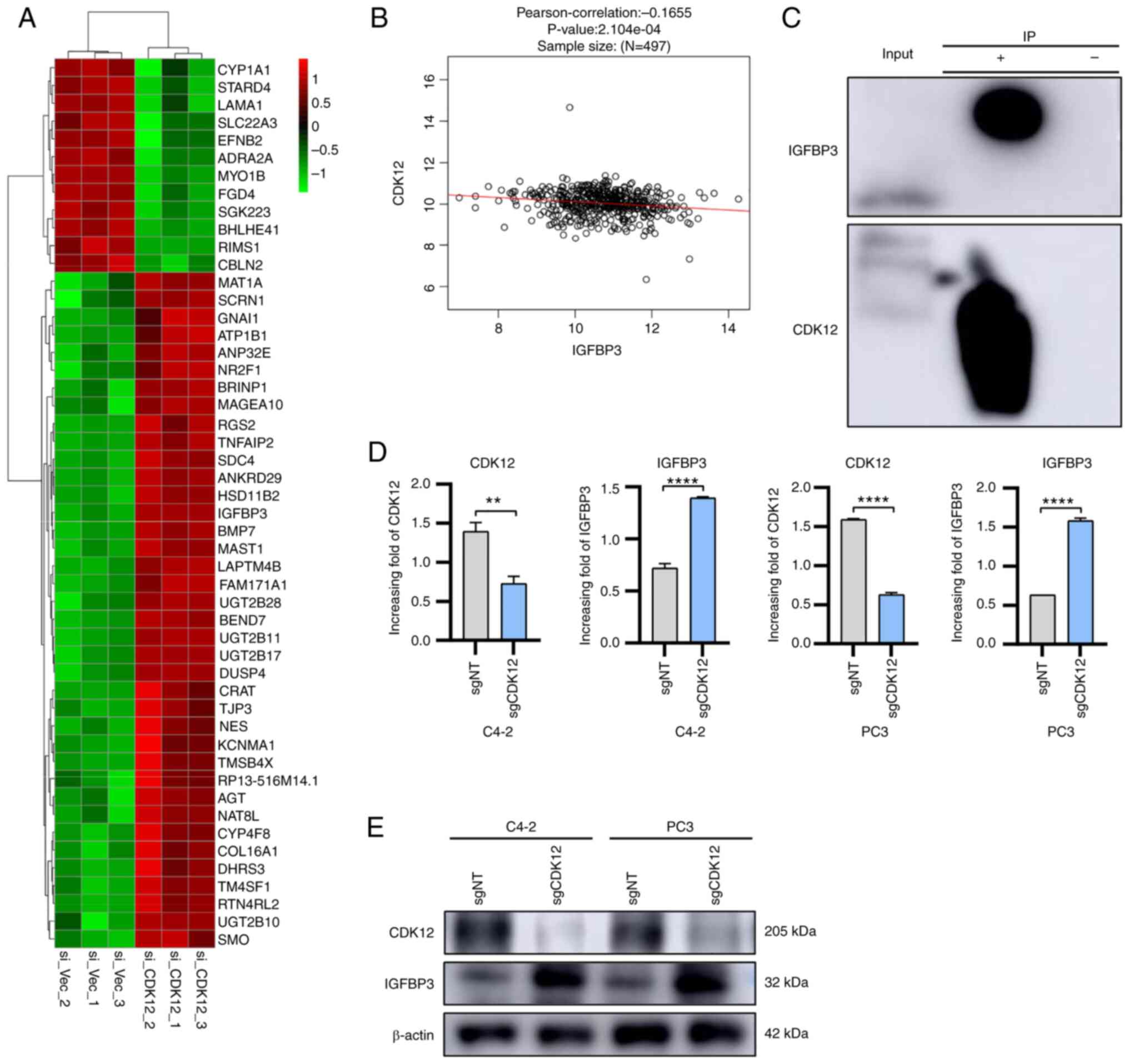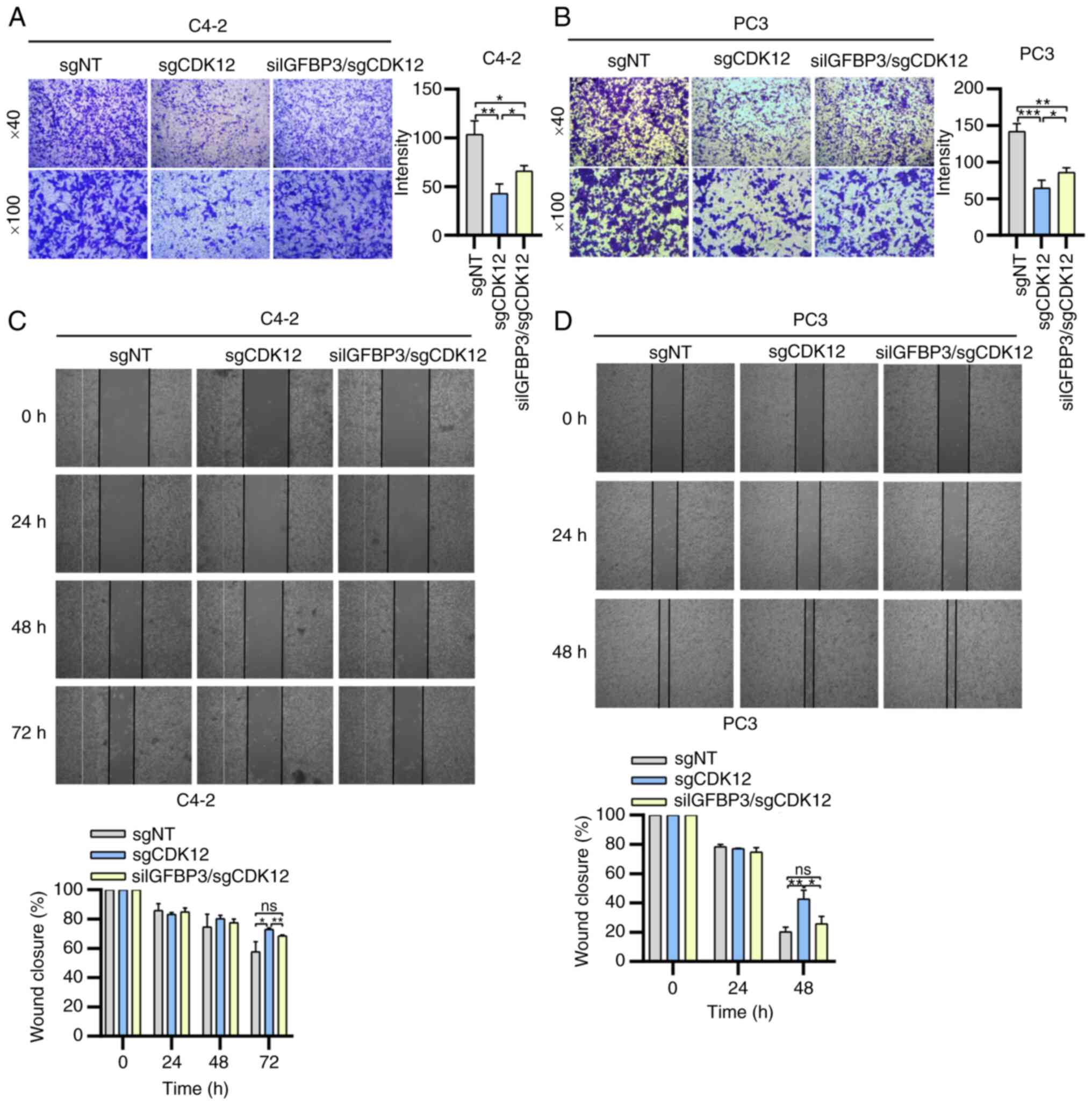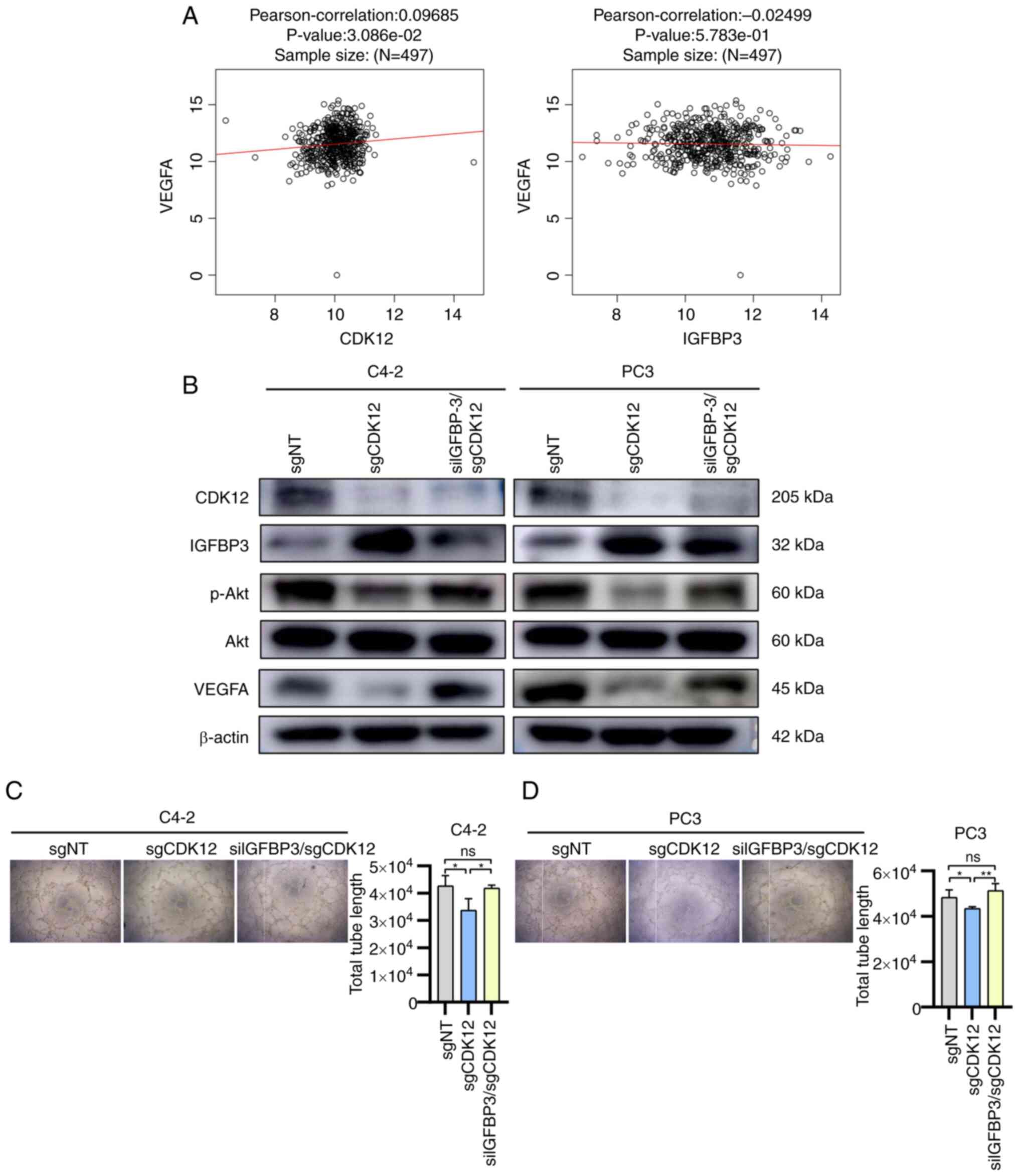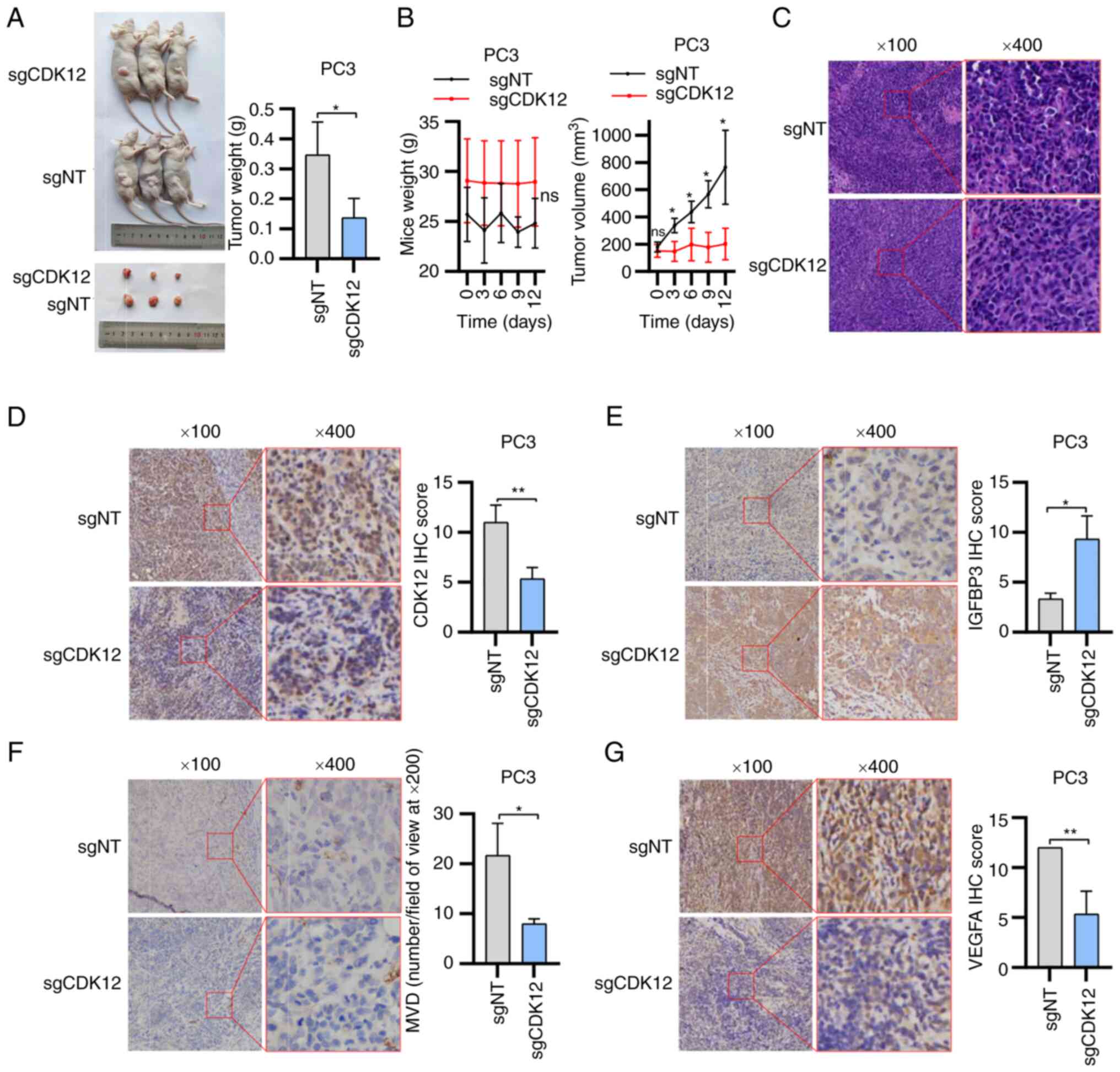|
1
|
Daniyal M, Siddiqui ZA, Akram M, Asif HM,
Sultana S and Khan A: Epidemiology, etiology, diagnosis and
treatment of prostate cancer. Asian Pac J Cancer Prev.
15:9575–9578. 2014.
|
|
2
|
Rebbeck TR: Prostate cancer genetics:
Variation by race, ethnicity, and geography. Semin Radiat Oncol.
27:3–10. 2017.
|
|
3
|
Wang G, Zhao D, Spring DJ and DePinho RA:
Genetics and biology of prostate cancer. Genes Dev. 32:1105–1140.
2018.
|
|
4
|
Liang H, Liu Y, Guo J, Dou M, Zhang X, Hu
L and Chen J: Progression in immunotherapy for advanced prostate
cancer. Front Oncol. 13:11267522023.
|
|
5
|
Siegel RL, Miller KD and Jemal A: Cancer
statistics, 2018. CA Cancer J Clin. 68:7–30. 2018.
|
|
6
|
Lassi K and Dawson NA: Emerging therapies
in castrate-resistant prostate cancer. Curr Opin Oncol. 21:260–265.
2009.
|
|
7
|
Wang W, Kong P, Feng K, Liu C, Gong X, Sun
T, Duan X, Sang Y, Jiang Y, Li X, et al: Exosomal miR-222-3p
contributes to castration-resistant prostate cancer by activating
mTOR signaling. Cancer Sci. 114:4252–4269. 2023.
|
|
8
|
Netto GJ, Amin MB, Berney DM, Compérat EM,
Gill AJ, Hartmann A, Menon S, Raspollini MR, Rubin MA, Srigley JR,
et al: The 2022 World Health Organization classification of tumors
of the urinary system and male genital Organs-Part B: Prostate and
urinary tract tumors. Eur Urol. 82:469–482. 2022.
|
|
9
|
Wang Z, Wang T, Hong D, Dong B, Wang Y,
Huang H, Zhang W, Lian B, Ji B, Shi H, et al: Single-cell
transcriptional regulation and genetic evolution of neuroendocrine
prostate cancer. iScience. 25:1045762022.
|
|
10
|
Carmeliet P: Angiogenesis in health and
disease. Nat Med. 9:653–660. 2003.
|
|
11
|
Fabian KL and Storkus WJ:
Immunotherapeutic targeting of tumor-associated blood vessels. Adv
Exp Med Biol. 1036:191–211. 2017.
|
|
12
|
Lammert E and Axnick J: Vascular lumen
formation. Cold Spring Harb Perspect Med. 2:a0066192012.
|
|
13
|
Lui GYL, Grandori C and Kemp CJ: CDK12: An
emerging therapeutic target for cancer. J Clin Pathol. 71:957–962.
2018.
|
|
14
|
Liu H, Liu K and Dong Z: Targeting CDK12
for cancer therapy: Function, mechanism, and drug discovery. Cancer
Res. 81:18–26. 2021.
|
|
15
|
Liu B, Lee KW, Anzo M, Zhang B, Zi X, Tao
Y, Shiry L, Pollak M, Lin S and Cohen P: Insulin-like growth
factor-binding protein-3 inhibition of prostate cancer growth
involves suppression of angiogenesis. Oncogene. 26:1811–1819.
2007.
|
|
16
|
Seligson DB, Yu H, Tze S, Said J, Pantuck
AJ, Cohen P and Lee KW: IGFBP-3 nuclear localization predicts human
prostate cancer recurrence. Horm Cancer. 4:12–23. 2013.
|
|
17
|
Johnson MA and Firth SM: IGFBP-3: A cell
fate pivot in cancer and disease. Growth Horm IGF Res. 24:164–173.
2014.
|
|
18
|
Oh SH, Kim WY, Kim JH, Younes MN,
El-Naggar AK, Myers JN, Kies M, Cohen P, Khuri F, Hong WK, et al:
Identification of insulin-like growth factor binding protein-3 as a
farnesyl transferase inhibitor SCH66336-induced negative regulator
of angiogenesis in head and neck squamous cell carcinoma. Clin
Cancer Res. 12:653–661. 2006.
|
|
19
|
Livak KJ and Schmittgen TD: Analysis of
relative gene expression data using real-time quantitative PCR and
the 2(-Delta Delta C(T)) method. Methods. 25:402–408. 2001.
|
|
20
|
Bai N, Xia F, Wang W, Lei Y, Bo J and Li
X: CDK12 promotes papillary thyroid cancer progression through
regulating the c-myc/β-catenin pathway. J Cancer. 11:4308–4315.
2020.
|
|
21
|
Shih HJ, Chen CL and Torng PL: IGFBP3
inhibits angiogenesis through intracellular regulation of THBS1
expression. Am J Cancer Res. 10:1728–1744. 2020.
|
|
22
|
He G, Li M, Fang L, Xu L, Huang X, Zheng
L, Yang L, Luo W, Cai Y, Ma W, et al: N-Myc induces the tumor
progression of prostate cancer by regulating FSCN1. Oncol Rep.
44:2265–2274. 2020.
|
|
23
|
Marciscano AE and Barbieri CE: CDK12 Gene
alterations in prostate cancer: Present, but clinically actionable?
Eur Urol. 78:680–681. 2020.
|
|
24
|
Liang S, Hu L, Wu Z, Chen Z, Liu S, Xu X
and Qian A: CDK12: A potent target and biomarker for human cancer
therapy. Cells. 9:14832020.
|
|
25
|
Wu YM, Cieślik M, Lonigro RJ, Vats P,
Reimers MA, Cao X, Ning Y, Wang L, Kunju LP, de Sarkar N, et al:
Inactivation of CDK12 delineates a distinct immunogenic class of
advanced prostate cancer. Cell. 173:1770–1782.e14. 2018.
|
|
26
|
Lotan TL and Antonarakis ES: CDK12
Deficiency and the immune microenvironment in prostate cancer. Clin
Cancer Res. 27:380–382. 2021.
|
|
27
|
Dallinga MG, Habani YI, Kayser RP, Van
Noorden CJF, Klaassen I and Schlingemann RO: IGF-binding proteins 3
and 4 are regulators of sprouting angiogenesis. Mol Biol Rep.
47:2561–2572. 2020.
|
|
28
|
Li CL, Liu B, Wang ZY, Xie F, Qiao W,
Cheng J, Kuang JY, Wang Y, Zhang MX and Liu DS: Salvianolic acid B
improves myocardial function in diabetic cardiomyopathy by
suppressing IGFBP3. J Mol Cell Cardiol. 139:98–112. 2020.
|
|
29
|
Oh SH, Kim WY, Lee OH, Kang JH, Woo JK,
Kim JH, Glisson B and Lee HY: Insulin-like growth factor binding
protein-3 suppresses vascular endothelial growth factor expression
and tumor angiogenesis in head and neck squamous cell carcinoma.
Cancer Sci. 103:1259–1266. 2012.
|
|
30
|
Ranke MB: Insulin-like growth factor
binding-protein-3 (IGFBP-3). Best Pract Res Clin Endocrinol Metab.
29:701–711. 2015.
|
|
31
|
Lin JS and Lai EM: Protein-protein
interactions: Co-immunoprecipitation. Methods Mol Biol.
1615:211–219. 2017.
|
|
32
|
Antonarakis ES, Isaacsson Velho P, Fu W,
Wang H, Agarwal N, Sacristan Santos V, Maughan BL, Pili R, Adra N,
Sternberg CN, et al: CDK12-Altered prostate cancer: Clinical
features and therapeutic outcomes to standard systemic therapies,
poly (ADP-Ribose) polymerase inhibitors, and PD-1 inhibitors. JCO
Precis Oncol. 4:370–381. 2020.
|
|
33
|
Wang X, Chen H, Luo J and Xie L: CDK12
mutation in advanced prostate cancer: A marker for clinical
subtype? Eur Urol. 77:342–343. 2020.
|
|
34
|
Rescigno P, Gurel B, Pereira R, Crespo M,
Rekowski J, Rediti M, Barrero M, Mateo J, Bianchini D, Messina C,
et al: Characterizing CDK12-Mutated prostate cancers. Clin Cancer
Res. 27:566–574. 2021.
|
|
35
|
Lei H, Wang Z, Jiang D, Liu F, Liu M, Lei
X, Yang Y, He B, Yan M, Huang H, et al: CRISPR screening identifies
CDK12 as a conservative vulnerability of prostate cancer. Cell
Death Dis. 12:7402021.
|
|
36
|
Qin Z, Li X, Tang J, Jiang X, Yu Y, Wang
C, Xu W, Hua Y, Yu B and Zhang W: Association between insulin-like
growth factor-binding protein-3 polymorphism-202 A/C and the risk
of prostate cancer: A meta-analysis. Onco Targets Ther.
9:5451–5459. 2016.
|
|
37
|
Beveridge DJ, Richardson KL, Epis MR,
Brown RAM, Stuart LM, Woo AJ and Leedman PJ: The tumor suppressor
miR-642a-5p targets Wilms Tumor 1 gene and cell-cycle progression
in prostate cancer. Sci Rep. 11:180032021.
|
|
38
|
Kim WY, Kim MJ, Moon H, Yuan P, Kim JS,
Woo JK, Zhang G, Suh YA, Feng L, Behrens C, et al: Differential
impacts of insulin-like growth factor-binding protein-3 (IGFBP-3)
in epithelial IGF-induced lung cancer development. Endocrinology.
152:2164–2173. 2011.
|
|
39
|
Kim JH, Choi DS, Lee OH, Oh SH, Lippman SM
and Lee HY: Antiangiogenic antitumor activities of IGFBP-3 are
mediated by IGF-independent suppression of Erk1/2 activation and
Egr-1-mediated transcriptional events. Blood. 118:2622–2631.
2011.
|
|
40
|
Oh SH, Whang YM, Min HY, Han SH, Kang JH,
Song KH, Glisson BS, Kim YH and Lee HY: Histone deacetylase
inhibitors enhance the apoptotic activity of insulin-like growth
factor binding protein-3 by blocking PKC-induced IGFBP-3
degradation. Int J Cancer. 131:2253–2263. 2012.
|
|
41
|
Park K, Kim JH, Jeon HG, Byun SS and Lee
E: Influence of IGFBP3 gene polymorphisms on IGFBP3 serum levels
and the risk of prostate cancer in low-risk Korean men. Urology.
75:1516.e1–e7. 2010.
|
|
42
|
Dudley AC: Tumor endothelial cells. Cold
Spring Harb Perspect Med. 2:a0065362012.
|
|
43
|
Hess K, Spille DC, Adeli A, Sporns PB,
Zitta K, Hummitzsch L, Pfarr J, Stummer W, Brokinkel B, Berndt R
and Albrecht M: Occurrence of fibrotic tumor vessels in grade I
meningiomas is strongly associated with vessel density, expression
of VEGF, PlGF, IGFBP-3 and tumor recurrence. Cancers (Basel).
12:30752020.
|
|
44
|
Folkman J: Tumor angiogenesis. Adv Cancer
Res. 19:331–358. 1974.
|
|
45
|
Farnsworth RH, Lackmann M, Achen MG and
Stacker SA: Vascular remodeling in cancer. Oncogene. 33:3496–3505.
2014.
|
|
46
|
Chang KH, Chan-Ling T, McFarland EL, Afzal
A, Pan H, Baxter LC, Shaw LC, Caballero S, Sengupta N, Li Calzi S,
et al: IGF binding protein-3 regulates hematopoietic stem cell and
endothelial precursor cell function during vascular development.
Proc Natl Acad Sci USA. 104:10595–10600. 2007.
|
|
47
|
Zhao HJ, Klausen C, Zhu H, Chang HM, Li Y
and Leung PCK: Bone morphogenetic protein 2 promotes human
trophoblast cell invasion and endothelial-like tube formation
through ID1-mediated upregulation of IGF binding protein-3. FASEB
J. 34:3151–3164. 2020.
|
|
48
|
Granata R, Trovato L, Lupia E, Sala G,
Settanni F, Camussi G, Ghidoni R and Ghigo E: Insulin-like growth
factor binding protein-3 induces angiogenesis through IGF-I- and
SphK1-dependent mechanisms. J Thromb Haemost. 5:835–845. 2007.
|
|
49
|
Lee HJ, Lee JS, Hwang SJ and Lee HY:
Insulin-like growth factor binding protein-3 inhibits cell adhesion
via suppression of integrin β4 expression. Oncotarget.
6:15150–15163. 2015.
|
|
50
|
Melincovici CS, Boşca AB, Şuşman S,
Mărginean M, Mihu C, Istrate M, Moldovan IM, Roman AL and Mihu CM:
Vascular endothelial growth factor (VEGF)-key factor in normal and
pathological angiogenesis. Rom J Morphol Embryol. 59:455–467.
2018.
|
|
51
|
Shariati M and Meric-Bernstam F: Targeting
AKT for cancer therapy. Expert Opin Investig Drugs. 28:977–988.
2019.
|
|
52
|
Revathidevi S and Munirajan AK: Akt in
cancer: Mediator and more. Semin Cancer Biol. 59:80–91. 2019.
|
|
53
|
Luo Z, Fujio Y, Kureishi Y, Rudic RD,
Daumerie G, Fulton D, Sessa WC and Walsh K: Acute modulation of
endothelial Akt/PKB activity alters nitric oxide-dependent
vasomotor activity in vivo. J Clin Invest. 106:493–499. 2000.
|
|
54
|
Dimmeler S, Fleming I, Fisslthaler B,
Hermann C, Busse R and Zeiher AM: Activation of nitric oxide
synthase in endothelial cells by Akt-dependent phosphorylation.
Nature. 399:601–605. 1999.
|
|
55
|
Semenza GL: HIF-1 and tumor progression:
Pathophysiology and therapeutics. Trends Mol Med. 8(4 Suppl):
S62–S67. 2002.
|
|
56
|
Dai C, Heemers H and Sharifi N: Androgen
signaling in prostate cancer. Cold Spring Harb Perspect Med.
7:a0304522017.
|



















